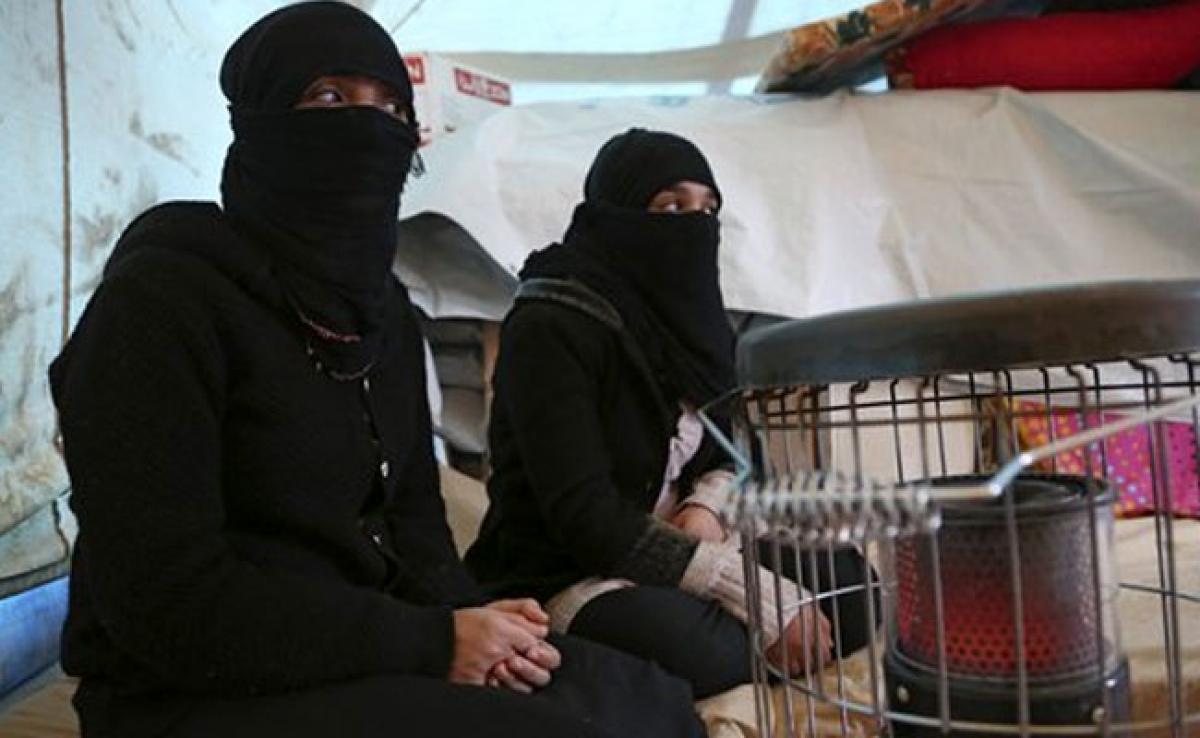Live
- Chanchalguda Jail Officials Say They Haven't Received Bail Papers Yet, Allu Arjun May Stay in Jail Tonight
- BJP leaders present evidence of illegal voters in Delhi, urge EC for swift action
- Exams will not be cancelled: BPSC chairman
- Nagesh Trophy: Karnataka, T.N win in Group A; Bihar, Rajasthan triumph in Group B
- YS Jagan condemns the arrest of Allu Arjun
- Economic and digital corridors to maritime connectivity, India and Italy building vision for future, says Italian Ambassador
- SMAT 2024: Patidar's heroics guide Madhya Pradesh to final after 13 years
- CCPA issues notices to 17 entities for violating direct selling rules
- Mamata expresses satisfaction over speedy conviction in minor girl rape-murder case
- Transparent Survey Process for Indiramma Housing Scheme Directed by District Collector
Just In

Rights groups claimed that the conflicts were caused by the government\'s repression of religious freedom and unfair ethnic policies.
China has introduced new restrictions in the far-western region of Xinjiang in what it describes as a campaign against Islamist extremism.
The measures, which took effect from Saturday, include prohibiting "abnormally" long beards and the wearing of veils in public places, reported South China Morning Post newspaper.
The latest restrictions, outlined in a sweeping new anti-extremism legislation, come on the heels of a series of steps to increase surveillance in the region that include the surrender of passports and mandatory GPS trackers in cars.
China has introduced new restrictions in the far-western region of Xinjiang in what it describes as a campaign against Islamist extremism.
The measures, which took effect from Saturday, include prohibiting "abnormally" long beards and the wearing of veils in public places, reported South China Morning Post newspaper.
The latest restrictions, outlined in a sweeping new anti-extremism legislation, come on the heels of a series of steps to increase surveillance in the region that include the surrender of passports and mandatory GPS trackers in cars.
It will also be illegal to refuse to watch state television and listen to state radio, or prevent children from receiving national education -- activities deemed "manifestations" of extremism, according to the official news website News.ts.cn.
"They're doubling down on security in Xinjiang," said James Leibold, an associate professor at Australia's Le Trobe University, whose research focuses on China's Uyghur minority.
The law didn't explain these measures in detail or define abnormal, but according to the state-run China Daily, long beards would be banned "as they are deemed to promote extremism".
The regulation, passed by the Xinjiang legislature's standing committee, said special task forces to curb extremism would be set up at regional, prefectural and county governments and local leaders would be evaluated annually for their localities' achievements on the matter.
Beijing blames Islamist militants and separatists for attacks in Xinjiang that have killed hundreds of people in recent years, reported the daily.
Rights groups claimed that the conflicts were caused by the government's repression of religious freedom and unfair ethnic policies.
The new law also banned: Using religious instead of legal procedures to marry or divorce, meddling in other people's weddings, funerals and inheritance; not abiding by family planning policies, and deliberately damaging legal documents.
The rules also stated that workers in public spaces, such as stations and airports, are now required to "dissuade" those who fully cover their bodies, including veiling their faces, from entering, and to report them to the police.
It will also be illegal to refuse to watch state television and listen to state radio, or prevent children from receiving national education -- activities deemed "manifestations" of extremism, according to the official news website News.ts.cn.
"They're doubling down on security in Xinjiang," said James Leibold, an associate professor at Australia's Le Trobe University, whose research focuses on China's Uyghur minority.
The law didn't explain these measures in detail or define abnormal, but according to the state-run China Daily, long beards would be banned "as they are deemed to promote extremism".
The regulation, passed by the Xinjiang legislature's standing committee, said special task forces to curb extremism would be set up at regional, prefectural and county governments and local leaders would be evaluated annually for their localities' achievements on the matter.
Beijing blames Islamist terrorists and separatists for attacks in Xinjiang that have killed hundreds of people in recent years, reported the daily.
Rights groups claimed that the conflicts were caused by the government's repression of religious freedom and unfair ethnic policies.
The new law also banned: Using religious instead of legal procedures to marry or divorce, meddling in other people's weddings, funerals and inheritance; not abiding by family planning policies, and deliberately damaging legal documents.
The rules also stated that workers in public spaces, such as stations and airports, are now required to "dissuade" those who fully cover their bodies, including veiling their faces, from entering, and to report them to the police.

© 2024 Hyderabad Media House Limited/The Hans India. All rights reserved. Powered by hocalwire.com







